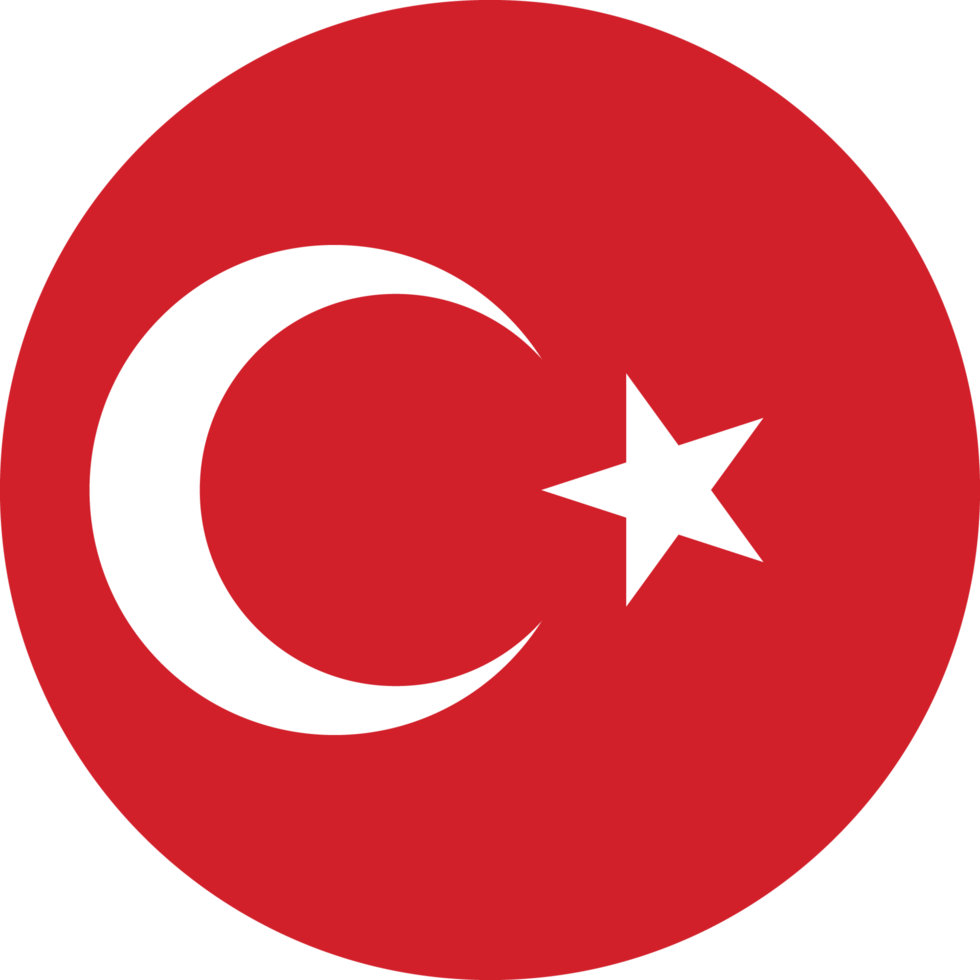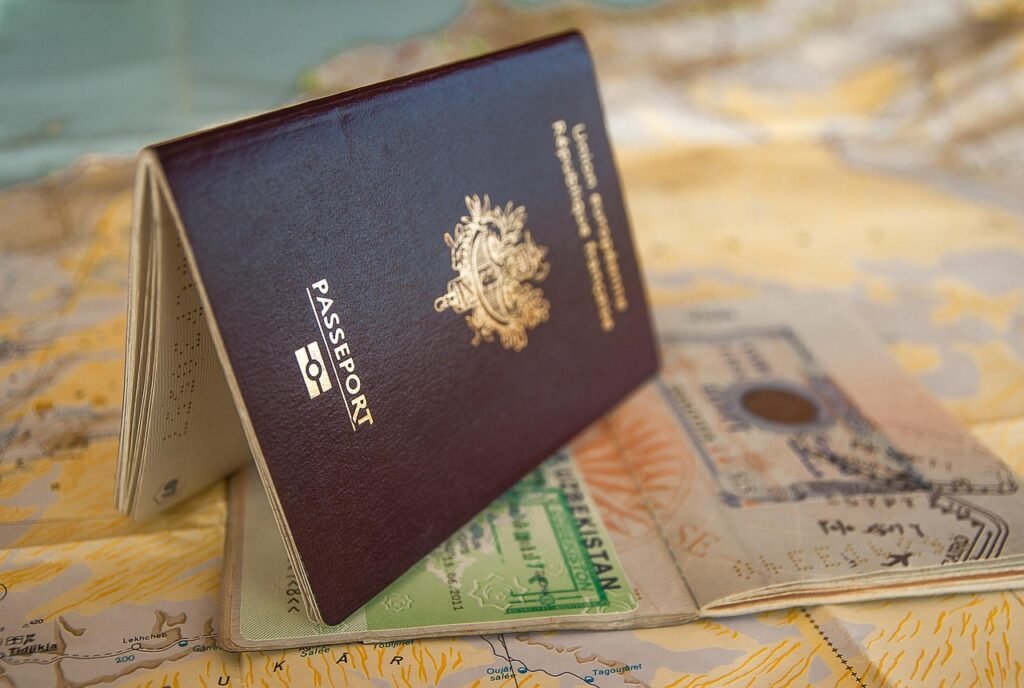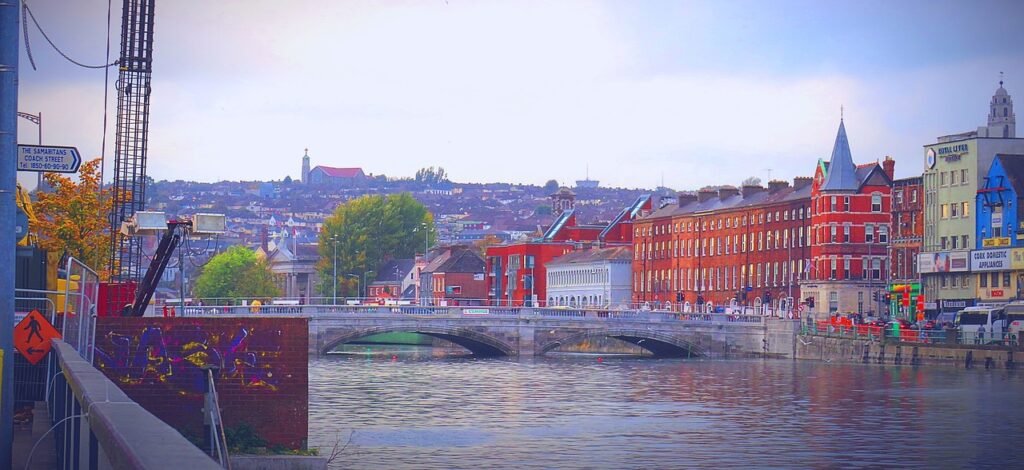Why Study in Turkiye?
Türkiye offers affordable, high-quality education in a country that bridges Europe and Asia, rich with culture, history, and diversity. With a growing number of English-taught programs—particularly in fields like medicine, engineering, business, and international relations—Turkish universities are becoming an increasingly popular choice for international students.
Tuition fees in Türkiye are generally lower than in many Western countries, and the cost of living is comparatively affordable, making it an attractive destination for students seeking quality education without high expenses.
Students in Türkiye benefit from well-equipped campuses, modern learning environments, and vibrant multicultural communities. The country’s strategic geographic position provides easy access to both Europe and the Middle East, enhancing travel and cultural exchange opportunities.
Studying in Türkiye not only offers an academically rewarding experience but also opens pathways to internships, employment, and post-study residence options, especially for those seeking to build a career in a dynamic and globally connected environment.

- Study in
Turkiye
Study Programs in Turkiye
Study Programs in Türkiye for International (including Bangladeshi) Students:
Schooling / Primary & Secondary Education
Türkiye offers public, private, and international schooling options. International schools in major cities like Istanbul and Ankara often follow the British, American, French, or IB (International Baccalaureate) curricula. Public schools are free for Turkish citizens and residents, but instruction is primarily in Turkish. International schools charge tuition and are geared toward expatriate and international families.
Diploma & Vocational Programs
Türkiye provides a variety of diploma and vocational training programs through vocational high schools and post-secondary vocational colleges. These programs focus on practical skills and career readiness in fields such as tourism and hospitality, health sciences, information technology, automotive engineering, and culinary arts.
Bachelor’s Degrees
Turkish universities offer a wide range of undergraduate programs, with many available in English, particularly at public and foundation (private non-profit) universities. Popular fields include medicine, engineering, architecture, international relations, economics, and business administration. Türkiye adheres to the Bologna Process, so degrees are aligned with European standards and widely recognized across Europe.
Master’s Degrees
Türkiye is known for high-quality, affordable master’s programs across disciplines such as engineering, business, social sciences, public health, agriculture, and Islamic studies. English-medium instruction is common in major programs, especially at larger universities. Tuition is competitive, and international students can also apply for Türkiye Scholarships.
PhD Programs
Doctoral programs in Türkiye are research-intensive and available in both public and foundation universities. Students can pursue research in science and technology, humanities, medical sciences, and other fields. Many universities offer programs in English and provide funding opportunities or assistantships to international candidates.

- Study in
Turkiye
Step-by-Step Guide
🇹🇷 Step 1: Research Universities and Programs
Explore Turkish universities offering English-taught or Turkish-medium programs. Look for institutions that align with your academic background and career goals. Popular fields include medicine, engineering, business, computer science, and social sciences.
🇹🇷 Step 2: Check Eligibility Requirements
Review academic entry criteria, language requirements (such as IELTS/TOEFL for English programs or Turkish language proficiency tests like TÖMER if required), minimum GPA, and any program-specific prerequisites.
🇹🇷 Step 3: Prepare and Submit Applications
Apply directly via the university’s official website or through Türkiye’s centralized application system (e.g., YÖK Atlas or university portals). Submit required documents such as academic transcripts, CV, motivation letter, recommendation letters, and language test scores. Make sure all documents are translated into Turkish or English if needed.
🇹🇷 Step 4: Explore Scholarships & Funding Options
Check for scholarships such as the Türkiye Scholarships (Türkiye Bursları), Erasmus+, and university-specific grants. Many Turkish universities provide financial aid to international students, especially those from developing countries.
🇹🇷 Step 5: Receive Offer and Accept Admission
Once you receive your acceptance letter, follow the university’s instructions to confirm your admission. Pay any required tuition deposit or administrative fees to secure your place.
🇹🇷 Step 6: Apply for Student Visa (Type D)
Apply for a Turkish student visa at the Embassy or Consulate of Turkey in your country. Submit your admission letter, proof of financial means (covering tuition and approx. $400–$600/month living expenses), accommodation confirmation, health insurance, police clearance, and medical certificate as required.
🇹🇷 Step 7: Arrange Accommodation and Insurance
Secure your housing, whether university dormitory or private accommodation. Purchase valid health insurance that meets Turkish visa requirements and covers your entire stay.
🇹🇷 Step 8: Plan Travel and Arrival
After receiving your visa, book your flight to Türkiye. Keep all essential documents (visa, admission letter, accommodation proof, financial proof) handy for immigration checks. Attend any university orientation or pre-departure sessions if offered.

- Study in
Turkiye
🇹🇷 Average Tuition Fees in Türkiye (2025)
Primary & Secondary School (International Schools)
$5,000 – $20,000 per year
International schools in Türkiye follow British, American, IB, or French curricula and are mainly located in major cities like Istanbul, Ankara, and Izmir. Public schools teach primarily in Turkish and are free for residents but may not suit non-Turkish-speaking students.
Bachelor’s Degree (Public Universities)
$1,000 – $4,000 per year
Tuition fees vary by university and program. Humanities and social sciences tend to be more affordable, while medicine, engineering, and IT programs generally have higher fees. Public universities offer many English-taught programs.
Master’s Degree (Public Universities)
$1,500 – $5,000 per year
Master’s programs are affordable compared to many Western countries. Many universities offer English-medium courses in fields such as business, engineering, economics, and international relations.
PhD Programs (Public Universities)
$800 – $3,000 per year
PhD studies are research-focused, and many universities provide scholarships or assistantships to support international doctoral candidates.
Private Universities / Business Schools (All Levels)
$7,000 – $25,000+ per year
Private foundation universities and business schools charge higher fees. MBA and specialized programs, particularly in Istanbul, can be more expensive depending on the institution’s prestige.
Visa Categories for Study in Turkiye

Short-Term Student Visa
Up to 90 days within a 180-day period.

Long-Term Student Visa (Type D Visa)
Issued for stays longer than 90 days, typically for the entire study period.

Residence Permit for Students
Typically valid for one year and renewable annually based on enrollment status.

Visa Application Checklist
 Türkiye Student Visa Application Checklist (Bangladesh)
Türkiye Student Visa Application Checklist (Bangladesh)
Completed Application Form
Filled and signed National Visa (Type D) application form, available on the Turkish Embassy or Consulate website.
Valid Passport
Must be valid for at least 6 months beyond the intended stay in Türkiye and contain at least two blank pages.
Admission Letter
Official letter of acceptance from a Turkish university or higher education institution confirming full-time enrollment in an accredited program.
Proof of Financial Means
Evidence you can financially support yourself during your stay. This may include:
-
Bank statements (typically showing funds of around $6,000+ or equivalent for one year),
-
Scholarship award letters, or
-
Financial guarantee from a parent or sponsor.
Proof of Accommodation
Documents showing where you will stay in Türkiye, such as a dormitory placement confirmation, rental agreement, or host invitation letter.
Passport Photos
Two recent passport-sized photographs in biometric format as per Turkish visa requirements.
Travel Itinerary
Flight booking or travel plan (recommended but not mandatory).
Health Insurance
Proof of valid health insurance coverage for your entire stay in Türkiye. This can be private or through the Turkish Social Security system if eligible.
Academic Certificates and Transcripts
Copies of previous educational qualifications (diplomas, transcripts, certificates) relevant to your chosen course.
Language Proficiency Proof
If required by the university, submit proof of English proficiency (IELTS/TOEFL) or Turkish language proficiency, depending on the language of instruction.
Police Clearance Certificate
Certificate of good conduct issued by Bangladesh Police, translated into English or Turkish and legalized if required.
Medical Certificate
Issued by a registered physician stating you are in good health and free from contagious diseases (translated if not in English or Turkish).
Parental Consent (If under 18 years old)
Notarized permission from parents or legal guardians for minors, translated into English or Turkish.
Payment Receipt of Visa Fee
Proof of payment of visa application fee (approximately $60 USD or local equivalent in BDT).
Biometric Data Submission
Schedule and complete biometric data collection at the Turkish Visa Application Centre or relevant embassy/consulate.
Additional Notes:
-
All documents not in English or Turkish must be officially translated.
-
Originals may be requested during the visa interview.
-
Carry photocopies of all documents as per embassy or visa center requirements.

- Study in
Turkiye
Job and PR Pathways After Study
🇹🇷 Job and Permanent Residency Pathways After Study in Türkiye
1. Post-Study Job Search Period:
After graduating from a Turkish university, international students can apply for a short-term residence permit extension to stay in Türkiye for up to 6 months to search for a job or start a business related to their field of study.
2. Employment Opportunities:
Türkiye has a diverse economy with job opportunities in sectors such as manufacturing, IT, engineering, finance, tourism, and textiles. Major cities like Istanbul, Ankara, and Izmir have multinational companies where English is commonly used, though knowledge of Turkish greatly enhances employment prospects.
3. Work Permit (Residence Permit for Employment):
Once you receive a job offer, your employer must apply for a work permit on your behalf. After the work permit is approved, you can apply for a residence permit linked to your employment. The job should correspond with your qualifications and meet labor market conditions. Self-employment or entrepreneurship permits are also possible if you plan to establish your own business.
4. Long-Term or Permanent Residence Permit:
You may apply for a long-term residence permit after legally residing in Türkiye for 8 continuous years. Alternatively, after 5 years of residence with stable income and no social assistance dependency, you can apply for a permanent residence permit. These permits grant broader rights including easier access to employment and social services.
5. Pathway to Turkish Citizenship:
You can apply for Turkish citizenship after 5 years of continuous legal residence (reduced in special cases like investment or marriage). Applicants must demonstrate basic knowledge of the Turkish language, respect for laws, and integration into Turkish society. Citizenship is granted through application and interview.

- Study in
Turkiye
Our Support During the Process
We’re with you at every step — from your first consultation to settling into life in Türkiye and beyond, ensuring a smooth, informed, and successful journey.
Personalized consultation at every stage — We take the time to understand your academic goals, financial background, and personal preferences to guide you toward the best-fit study options in Türkiye.
One-on-one support for admission, visa, and travel — Dedicated assistance with university applications, document preparation, student visa submissions, and travel planning to Türkiye.
Always accessible — Connect with us via call, WhatsApp, email, or in person — whichever communication method works best for you.
Regular updates, reminders, and document reviews — Stay on track with timely updates, important deadline alerts, and expert review of your application documents to minimize errors or delays.
Post-arrival check-ins and alumni mentoring — We continue our support after you arrive in Türkiye, offering guidance and linking you with alumni who have successfully settled there.
Support for job search and PR planning — Get tailored advice on finding jobs in Türkiye, preparing your CV/resume, and exploring post-study work permits and long-term residency options.





